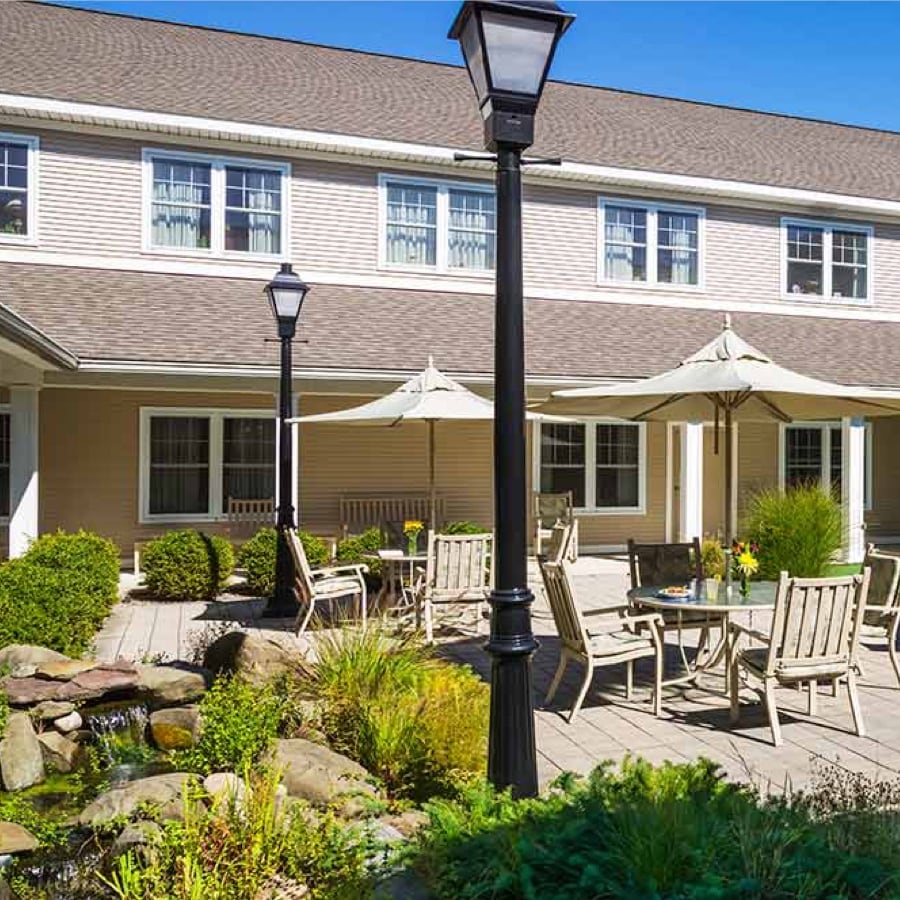If you’ve been seeing lots of purple, here’s why: June is Alzheimer’s and Brain Awareness Month. The Alzheimer’s Association reminds us that worldwide, 50 million people are living with Alzheimer’s and other dementias. Now is a good time to educate yourself on the symptoms and stages of these diseases so that you can be better prepared to respond to the needs of a loved one.
Understanding Alzheimer’s disease
Alzheimer’s disease is the most common cause of dementia. It is a condition where brain cells decline in function. It makes up 60% to 80% of all dementia cases. Alzheimer’s is not a normal part of aging — it’s a progressive brain disease, meaning it gets worse over time. Alzheimer’s disease usually begins as mild cognitive impairment, which slowly progresses into serious functional difficulties. There is no proven way to prevent Alzheimer’s disease.
Symptoms
According to the Mayo Clinic, memory loss is one of the most common symptoms. People with Alzheimer’s often:
- Forget recently learned information
- Miss appointments or events and don’t recall them later
- Misplace items and set them in strange locations
- Eventually forget the names of familiar people and objects
- Experience confusion about time and place
In addition, other warning signs include problems with tasks that involve numbers, such as paying bills or balancing checkbooks. Experiencing confusion, anxiety, aggression and fear. Forgetting what day it is, or the year. Misplacing personal items and then accusing others of stealing them. Poor grooming habits, increased daytime napping or insomnia, or overall changes in mood or personality can be symptoms of Alzheimer’s.
Understanding Alzheimer’s stages
According to the Alzheimer’s Association, Alzheimer’s progresses slowly in three general stages:
Early
This is the stage where you might begin to notice changes in a loved one. Some of these could include:
- Problems coming up with the right word
- Difficulty remembering a name after just being introduced
- Frustrations over doing what used to be a simple task
- Forgetting content that was just read
- Getting lost in familiar places
- Can no longer organize or plan as before
Moderate
This stage can last for years, requiring more assistance for the senior as time passes. Symptoms may include:
- No recollection of one’s personal history
- Feeling frustrated, angry or withdrawn, especially in socially or mentally challenging situations. Confusion about where they are or the day of the week.
- Unable to make decisions about what to wear for the weather, or for an occasion
- Trouble controlling bladder and bowels.
- Sleep issues, such as excessive napping or nighttime insomnia
- Tendency to wander and become lost
- Significant changes in personality and behavior, such as becoming suspicious, believing others are lying, or repeating a behavior over and over.
Late Stage
In this phase, major changes in personality have occurred, and a higher level of assistance with daily activities will be required. The effects of this stage include:
- Losing awareness of recent experiences
- Not knowing where they are
- Worsening of physical abilities, such as walking, sitting and swallowing
- Having more trouble communicating
Understanding Alzheimer’s and how a Memory Care program can help
In a dedicated memory care setting such as you’ll find in a Peregrine Senior Living community, daily routines, activities, and care are specifically designed to offer comfort and assistance to residents with Alzheimer’s and other dementias. Here, the routine that is so important for reducing agitation and anxiety is in place. Specialized programming offers residents the opportunity to feel a sense of accomplishment and even independence, as activities and events are arranged to tap elements of their life history.
Specially trained caregivers offer soothing personal attention with cuing that is both verbal as well as visual. Residents also benefit from living in space that is uniquely designed to reduce wandering and offer a comfortable, home-like atmosphere.
A fresh perspective on memory care awaits you at Peregrine Senior Living
In memory care at Peregrine Senior Living, our goal is to gently stimulate and connect with our loved one through personal support just for them. We invite you to learn more about The Peregrine Way™. Contact us today.











